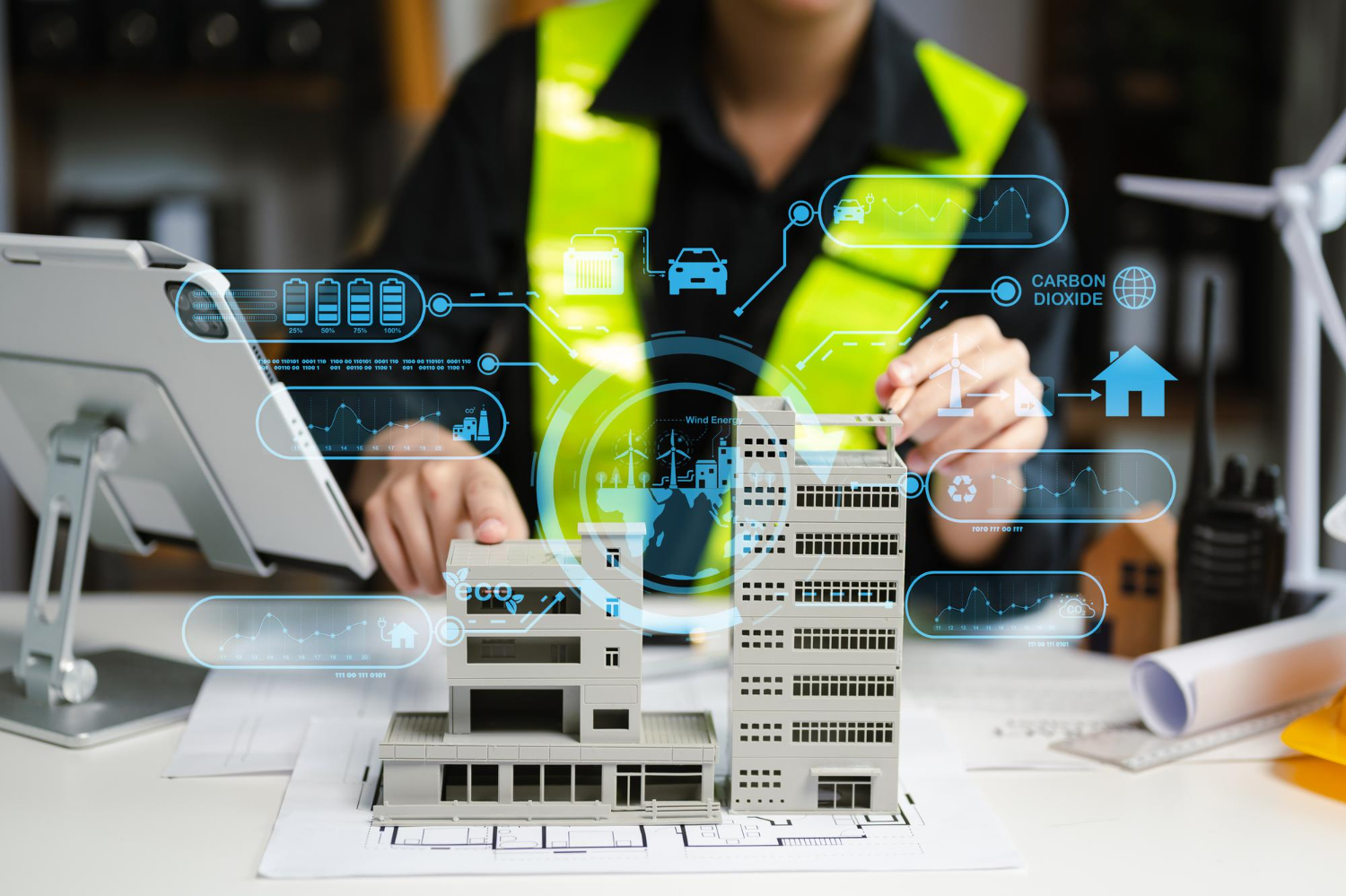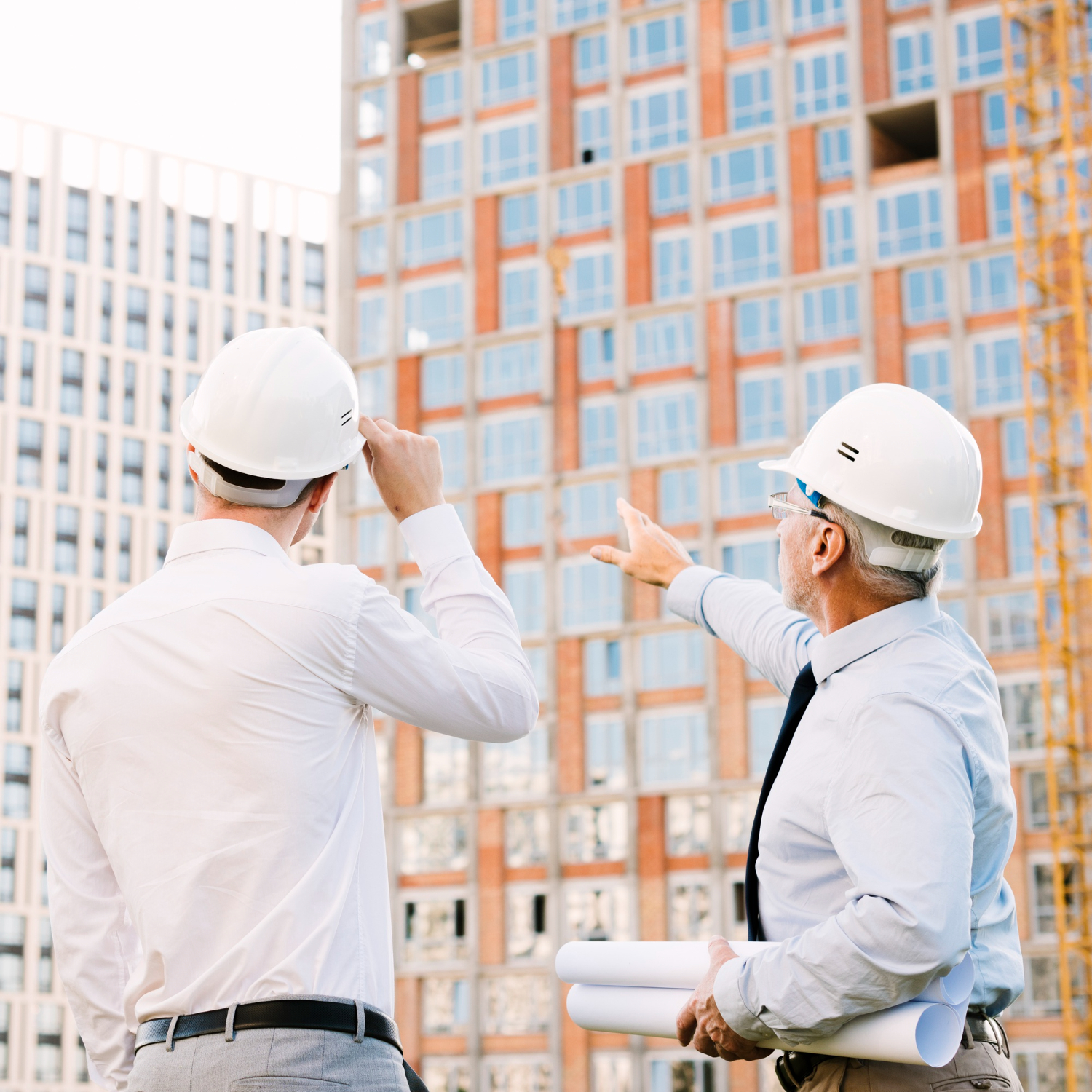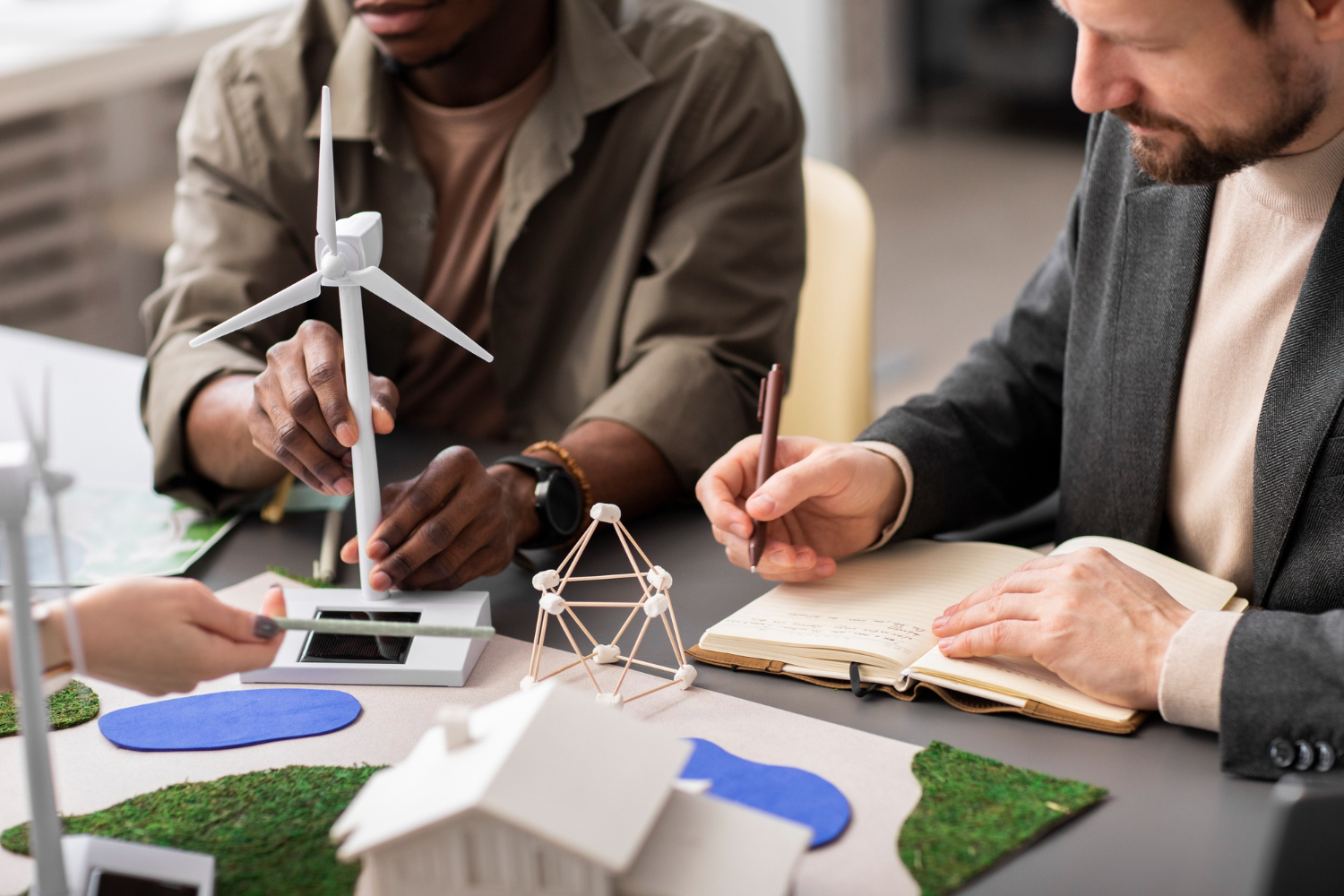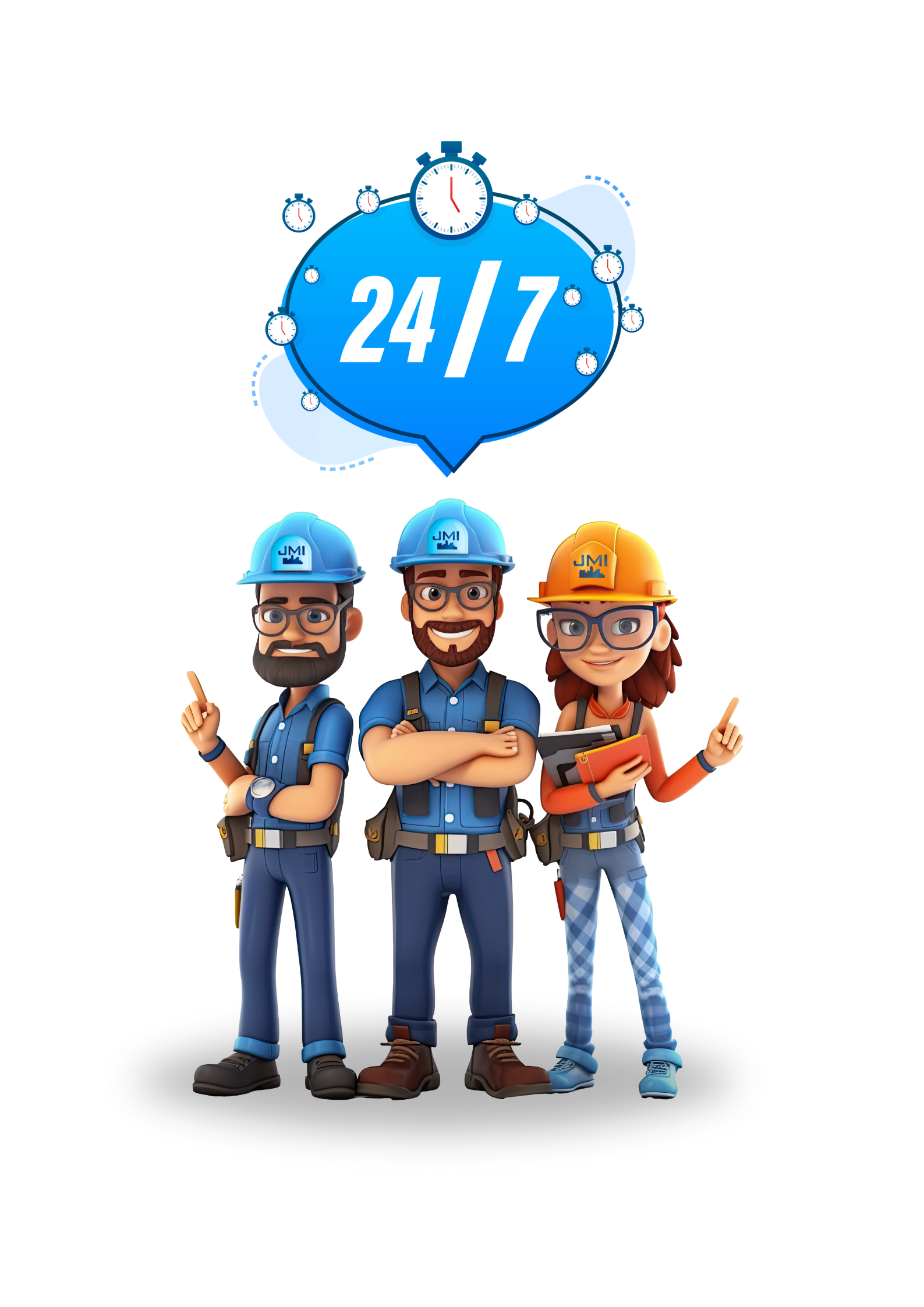Building Optimization
(Audits and Surveys)
When you choose JMI Mechanical, you’re getting skilled and friendly technicians with a trustworthy brand and reputation. We take pride in our work because we genuinely enjoy what we do, and it reflects in our service!
Understanding Building Optimization
In today’s world, making sure buildings use energy wisely and are kind to the environment is really important. That’s where building optimization comes in. It’s all about making buildings work as best as they can so they don’t use too much energy, they don’t harm the planet too much, and the people inside feel comfortable. As energy prices go up and we worry more about climate change, getting buildings optimized is more important than ever before.
What Does Building Optimization Groups Do?
Building optimization groups are like teams that help organizations make their buildings work better. These groups have experts who know a lot about different parts of buildings, like how they use energy, how their heating and cooling systems work, and even how the lights can be improved. They do lots of things, like checking how much energy buildings use, suggesting ways to use less energy, putting in new technologies that save energy, and making sure everything keeps working well over time.


The Advantages of Making Buildings Better
Making buildings better brings lots of good things:
- It saves money by using less energy and spending less on running the building. When we make buildings work more efficiently, like using less electricity and water, it means we don’t have to pay as much for bills. This helps businesses and organizations save money and have more in their pockets.
- It helps the environment by cutting down on pollution and using fewer natural resources. When buildings are optimized to use less energy, they produce fewer harmful gases that can hurt the Earth. Plus, when we use less water and materials, it helps to protect our planet’s resources.
- It makes buildings more comfortable and pleasant for people inside. When buildings are optimized, they can be warmer in the winter, cooler in the summer, and just generally nicer to be in. This means happier and more productive people working or living inside.

Getting to Know Energy Saving Services
Energy-saving services are all about using less energy in buildings. These services have many ways to do this:
- They check how much energy buildings are using and find ways to use less. This is like giving the building a check-up to see where it can be healthier.
- They figure out where energy is being wasted and how to stop it. For example, they might find places where lights are left on when nobody is using them, and they can fix that.
- They come up with plans to save energy and put them into action. This might mean installing better insulation, using more efficient appliances, or even using renewable energy sources like solar power.
Overall, energy-saving services are super important for helping buildings use less energy, which is good for both the people inside and the planet as a whole.
Understanding Energy Optimization
Energy optimization is all about making buildings more efficient in how they use energy. There are a few important parts to it that we need to know about.
1. Energy Audits and Assessments
Before making any changes, it’s important to figure out where a building could be using less energy. This is done through energy audits and assessments. Think of it like checking a report card for a building’s energy use. These assessments look at how energy is being used and find places where it’s being wasted. Once we know where the problems are, we can figure out how to fix them.
2. Implementing Energy-Efficient Solutions
Once we know what needs fixing, it’s time to make changes. This could mean upgrading things like heating and cooling systems (HVAC), using better lighting that doesn’t use as much energy, or improving how a building’s systems work together. It’s like giving a building an energy-saving makeover.
3. Monitoring and Maintenance
There needs to be more than just making changes; we need to make sure they keep working well. Monitoring means keeping an eye on things to make sure they’re still saving energy as they should. Maintenance is like giving the systems in a building regular check-ups to make sure they stay efficient over time.
Case Studies and Success Stories
When we talk about building and energy optimization, it might sound complex, but real-life stories show us just how impactful and beneficial these strategies can be. Imagine looking at examples from actual buildings—like offices, factories, or schools—and seeing how they’ve managed to save a lot of energy and help the environment by optimizing their systems. These stories are like proof that these strategies really work.
Dealing with Challenges in Building and Energy Optimization
When it comes to improving buildings and making them more energy-efficient, there are lots of good things that can happen. But it can be challenging. Some problems can get in the way. These include needing more money, having other important things to do, and just getting stuck in the old way of doing things. However, if we come up with smart plans and get help from experts who know about optimizing buildings, we can find ways to solve these problems. We can do things like picking the best projects that will save us the most money, finding ways to get money from programs that want to encourage energy savings, and making sure everyone in our organization cares about being eco-friendly. These strategies can help us get past the things that are holding us back and reach our goals of making buildings better and more efficient.

Dealing with Challenges in Building and Energy
Optimization
When it comes to improving buildings and making them more energy-efficient, there are lots of good things that can happen. But it can be challenging. Some problems can get in the way. These include needing more money, having other important things to do, and just getting stuck in the old way of doing things. However, if we come up with smart plans and get help from experts who know about optimizing buildings, we can find ways to solve these problems. We can do things like picking the best projects that will save us the most money, finding ways to get money from programs that want to encourage energy savings, and making sure everyone in our organization cares about being eco-friendly. These strategies can help us get past the things that are holding us back and reach our goals of making buildings better and more efficient.
The Exciting Future of Making Buildings More Energy-Efficient
In the coming years, we’re set to see some amazing changes in how we make buildings more energy-efficient. New technology, like smart devices that connect to the internet, tools that analyze data, and computer programs that learn like humans (artificial intelligence), are going to completely change how we make buildings work better. These fancy gadgets will help us understand how well buildings are doing and even predict when things might break so we can fix them before they do. This not only makes buildings work better but also saves money because we can avoid costly repairs.

The Role of Technology in Optimization
Technology is super important when it comes to making buildings and energy use more efficient. Do you know those smart gadgets and sensors that are everywhere nowadays? Well, they help keep an eye on buildings and equipment in real time. This means we can fix things before they break and make everything run smoother. Plus, there are these cool tools that analyze data to figure out how we’re using energy. They can tell us where we’re wasting energy and how we can do better. And get this: there are even computer programs that can learn and make buildings work better all on their own. They can change settings based on how many people are around or what the weather is like. So, basically, technology helps organizations save money, use less energy, and be more environmentally friendly by making things work as efficiently as possible.
Thinking About Costs and Your ROI
When you’re thinking about building and making energy improvements, it can seem like a lot of money upfront. But in the long run, it usually ends up being a smart investment. When you work on using less energy and cutting down on day-to-day costs, you can actually save a lot of money over time. Plus, there are often programs that can help you pay for some of the initial costs. By looking closely at how much you might save and what help is out there, you can make a smart choice about whether it’s worth it to invest in these improvements. Your return on investment outweighs the initial investment cost over time.
Choosing the Right Optimization Partner
Picking the perfect partner for optimizing buildings or energy is super important for making sure those projects work well. When you’re looking at different companies to work with, there are a few things you should think about. You want to check out how much they know about the stuff they’re doing, how long they’ve been doing it, and if they’ve done a good job before. They must understand what your organization needs and the problems you’re facing, and they should be able to come up with solutions that fit just right. Plus, they must be open and honest with you; they keep you in the loop, and you feel like you can trust them to get the job done right.

Get in Touch with the Pros @ JMI Mechanical!
Making buildings work better is super important for companies that want to save money, use less energy, and be kinder to the planet. When businesses team up with experts in building optimization and use services that make energy use smarter, they can make their buildings much better places to be. With the right attitude, tools, and knowledge, making buildings work better can change how we build and use them for the long haul.
Do you have any questions or need advice? Feel free to reach out to us by giving us a call at 317-243-7180. We’re here to help and offer customized guidance based on your specific needs.
FREE QUOTE
Do you need help with HVAC or Plumbing service or maintenance? Fill out this form to get in touch with JMI Mechanical.
OFFICE LINE
ADDRESS
5610 Dividend Rd. Suite A, Indianapolis, IN 46241
WORKING HOURS
OPEN 24/7/365
OFFICE LINE
ADDRESS
5610 Dividend Rd Suite A, Indianapolis, IN 46241
WORKING HOURS




